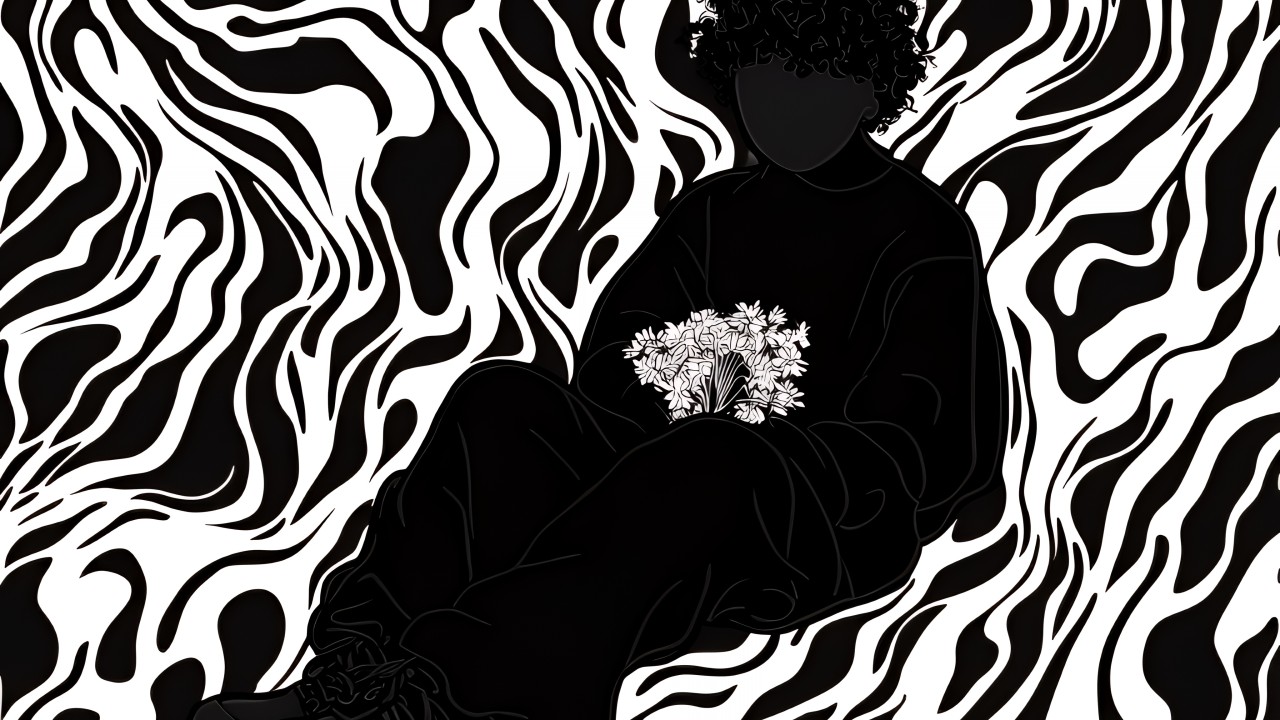No One Teaches You How to Be This Man

I didn’t become a man in one moment. It wasn’t a single conversation, a ceremony, or a rite of passage. It was slow. Uneven. Sometimes quiet and painful. Sometimes loud and awkward. Mostly invisible.
I became a man through watching the men in my life carry weight without complaint. In Ghana, I watched uncles press ironed shirts onto cracked shoulders, show up to Sunday service like nothing had ever broken them. I watched my father sit in silence when we had visitors, his hands folded, legs still, only speaking when spoken to. He taught me more in that silence than any lecture I’ve heard since.
I learned that manhood was composure. That it meant knowing when not to speak, especially when you’re the only Black voice in a white room. Later, I would learn to call this performance. Respectability. But back then, it was just survival.
When I moved into design, I thought I’d found freedom. Colour, creativity, possibility. But the freedom was conditional. I had to package my difference in a way they could digest. African, but modern. Political, but calm. Emotional, but coherent. I couldn’t bring too much truth into the room. Truth makes people uncomfortable, especially when it’s spoken in an accent they don’t expect.
Being a Black man in these spaces means measuring yourself constantly. How loud is my voice in this meeting? Did I smile enough in that reply? If I say no, will I be seen as difficult? If I say yes, will I betray myself?
I’ve been praised for my ‘leadership’ in rooms where no one asked how tired I was. I’ve been told I’m ‘articulate’ in tones that felt more like surprise than compliment. I’ve been made a symbol when all I wanted was to be a person.
And then there’s shame. Quiet, hard shame. The kind that creeps in when your success starts to distance you from the people who first believed in you. The cousin who thinks you’ve forgotten where you came from. The friend who jokes that you speak “like a white man now.” The auntie who asks why you don’t have kids, even with all your degrees. They think you’ve arrived. But you’re still becoming. And often, you’re just trying not to disappear.
Some of the deepest grief I’ve known hasn’t come from death, but from silence. From giving something everything I had, and still being told it wasn’t enough. That it was strong, but not quite. That it mattered, but not here. I held that rejection like a stone in my mouth. Polite emails don’t soften the way something breaks inside you when you realise the people who say they want change don’t want your change. Not in your words. Not in your voice.
I didn’t cry that day, but something in me closed. Quietly. It took weeks to open again. It came back slowly through poems, cooking, talking with people who saw me without needing to be convinced. I took long walks. Reread things I’d written years ago and realised I’ve always been searching for language that makes me whole.
Desire is complicated. I was taught to want things I couldn’t name. Stability. Recognition. Someone who can hold your fear without shrinking from it. Sometimes I want to be touched not because I’m lonely, but because I need to feel real. Other times I disappear into work because it’s easier to build things than to let myself be seen. I’ve confused intimacy with safety. I’ve kept people close but not deep. I’ve longed for someone who speaks to the version of me I hide when I teach, when I smile, when I nod through another meeting that pretends to be about progress.
There’s a kind of intimacy I crave that has nothing to do with romance. It’s the kind that says, I know where you’ve been. I know how hard it is to still believe. And sometimes, I do. Still believe. Even after everything.
Some days I feel like a bridge. Between cultures, between expectations, between who I was and who I’m still trying to be. Between the softness I crave and the hardness I’ve learned. And it’s lonely sometimes. But it’s also sacred.
There is softness. Not enough of it, but it’s there. In the way I now let myself cry at music that reminds me of home. In the way I talk to young Black men with gentleness, not authority. In how I carry my late-night thoughts into early-morning writing, without shame. That softness is survival too.
No one teaches you how to be this kind of man. You piece it together from memories, from fragments of language, from books that almost get it right, from dreams you’re still afraid to say out loud.
But I’m still here. Still building. Still writing my name in rooms that weren’t made for me. Not to prove anything. But to remind myself I belong. To remind the boy I used to be that we made it this far, even when it didn’t look possible.
And maybe that’s enough for today.

